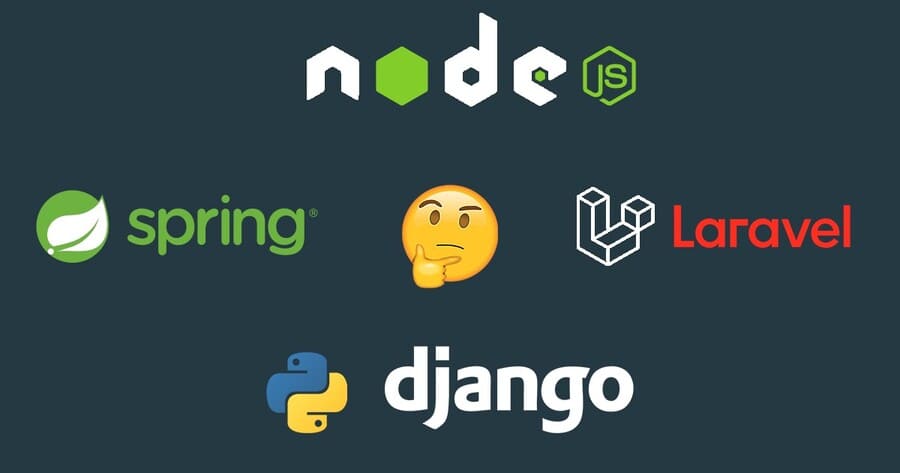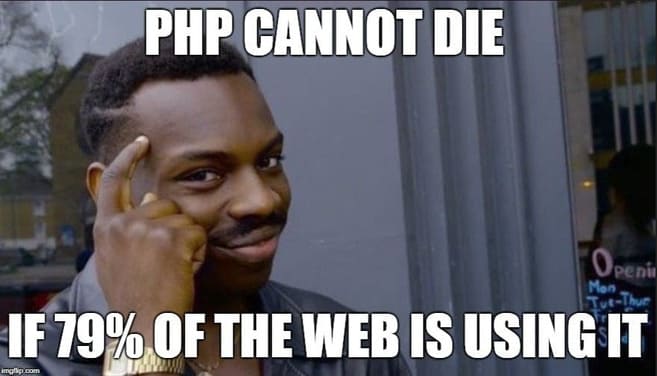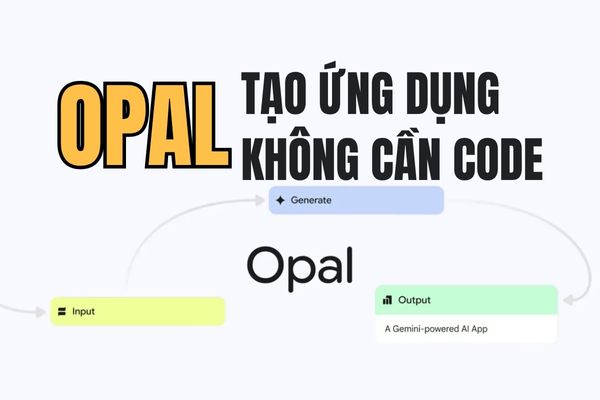Web technology is evolving very fast so now we have a lot of modern tools and frameworks. Maybe you are standing between the choice of frontend, backend or database. Many developers have this big question – Which technology should I start with?
| Join the channel Telegram of the AnonyViet 👉 Link 👈 |

Sometimes we choose a language with which we have worked before or a language with which we are comfortable. It’s human nature, we always cling to our comfort zone and that’s where things start to go wrong. Including choosing a framework overkill. Or even worse, we choose a different technology in the middle of a project and end up rewriting the code in a different language.
Therefore, it is important to choose the right technology before starting a new project. So in this article, I will help you choose the best backend language.
In this article, I will talk about different backend technologies like Node.js, Java – Spring, Laravel – PHP and Python – Django. We will compare them on different aspects like reliability, scalability, performance, security, developer experience and most importantly, hosting cost.
What is backend?
In a nutshell, the backend has code that runs on the server side and is responsible for handling and managing storage, databases, and other resources. The backend is also known as the data access layer of the software.

You should always start with choosing the right backend. As it serves as the backbone of your application. We have a lot to choose from, but I’ll just cover some popular backend frameworks in this article and see which one works best for you.
Node.js
Node.js use asynchronous programming! That is to say, it is “non-blocking”. In other words, it doesn’t wait for a resource to finish working. It will immediately be ready to take on the next request and call back when it’s done. Node.js is highly extensible.
When to use Node.js?
When your application is “event driven” and does a lot of I/O operations. Also, when you have to make different API calls from the backend program itself. Here in this case you can take advantage of the feature non-blocking of Node.js.
When NOT to use Node.js?
When you have a heavy algorithm or a job that consumes a lot of CPU resources. Since Node.js runs on a single thread like client-side js, your application will be very inefficient for CPU-intensive tasks.
4. Java – Spring Boot
Spring is the most powerful, lightweight, and popular framework that makes Java faster, easier to use, and more secure. Spring boot helps you build Spring-based applications. It serves 80% of people’s needs for a modern web application. It is useful for creating standalone applications with minimal effort.
When to use Spring Boot?
When your main focus is security, you may want to write banking or financial applications. In case you cannot prioritize security, Spring boot will be the best choice. Since Java supports multithreading, it becomes a great choice for building complex and highly concurrent web applications.
When NOT to use Spring Boot?
Although, there is no limit to spring, it can serve all your needs. However, sometimes applications that don’t normally need heavy computation, then spring is an overkill option. The only thing to say no to Spring boot is that it is a bit complicated and requires a lot of expertise.
5. PHP – Laravel
Laravel is an open source PHP framework. It follows the MVC (Model-View-Controller) architecture. Laravel makes life easier because it has a lot of developer friendly features, one of them is query builder or ORM (Object Relational Mapping). Before Laravel, it seemed that PHP was dying but now it is one of the most popular frameworks.

When to use Laravel?
When development time is what you need, then Laravel is the best choice. Because it has a lot of outstanding features that help the web grow very quickly compared to other frameworks. Also, Laravel can be hosted on a shared server thus making it cheaper as well, so when time and cost are key then you should use Laravel.
When NOT to use Laravel?
PHP is not considered more secure than Spring and Node.js, however, Laravel prevents some basic attacks like SQL injection and cross-site scripting and adds an extra layer of security to it. However, PHP is never recommended for applications that need security.
6. Python – Django
Django is a web framework Python high level is fast, secure and extensible. Django promotes clean and fast application development. It handles most of the intricacies of web development, so you can focus on writing your apps without worrying about anything else.
When to use Django?
Since Django is based on python it supports libraries machine learning like PyTorch, NumPy, etc. Its computational and statistical capabilities make it the ideal platform for machine learning applications.
When NOT to use Django?
Django is not suitable for small projects with only a few features and requirements. Because it is framework It’s complete, so it has a lot of code available that small projects don’t need. As a result, unnecessary server processing time and bandwidth is consumed.
7. Conclusion
Each language and framework has its own pros and cons. You need to know what your requirements are to decide on the right language. Because it will be associated with the life cycle of the product.











